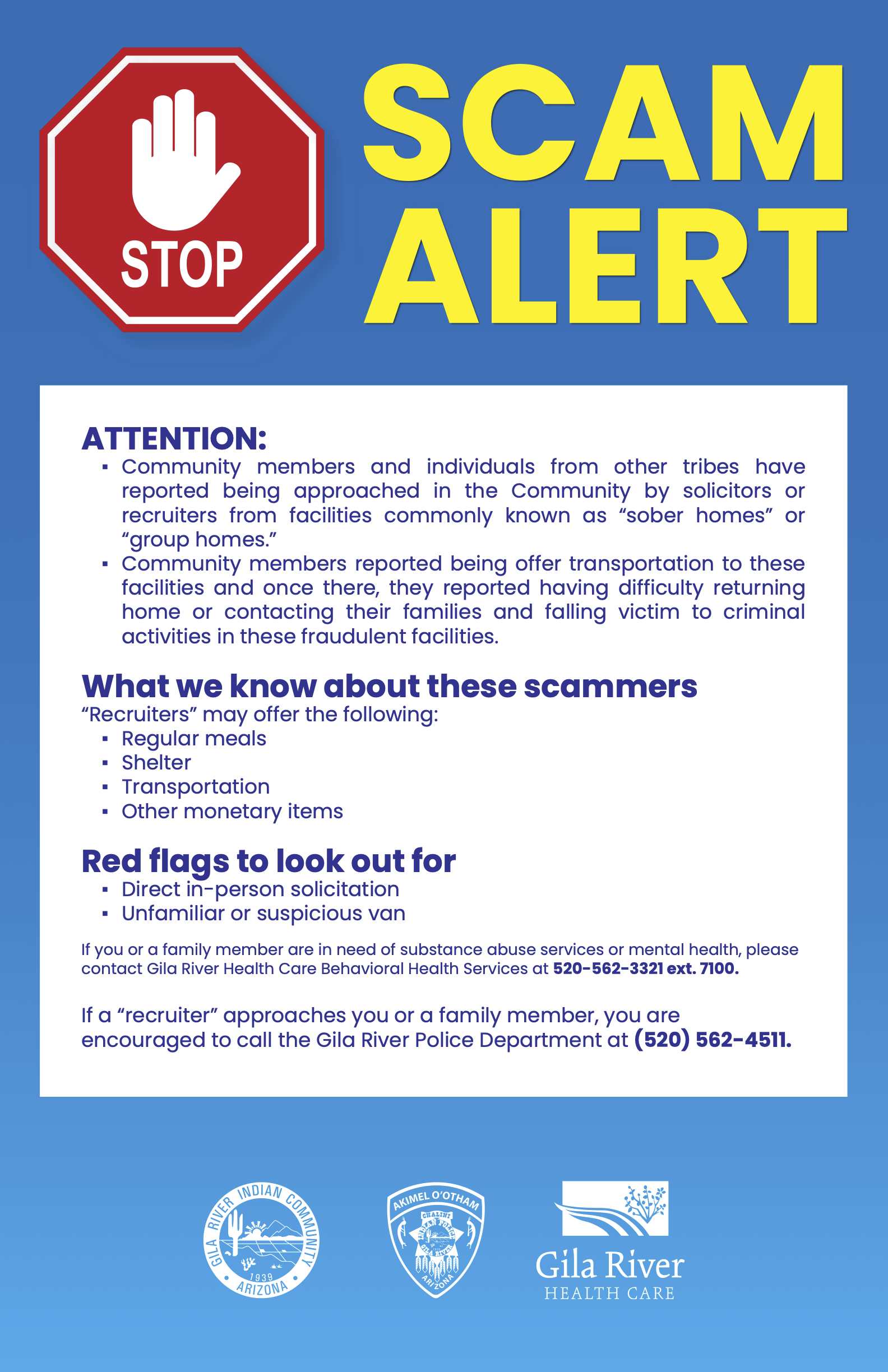Arizona tribal members seek sobriety, instead find fraud
Emma Hughes
Gila River Indian News
In May, Arizona state and tribal officials addressed the issue of fraudulent Medicaid providers and the exploitation of tribal members through the Arizona Health Care Cost Containment System (AHCCCS).
“For years, these providers have been allegedly defrauding the state millions of dollars while creating a large-scale humanitarian crisis that disproportionately affects Arizona’s tribal communities,” said Arizona Gov. Katie Hobbs. She announced that the Governor’s Office approved a full audit of claims going as far back as 2019 and that AHCCCS has halted payment to over 100 providers.
AHCCCS is the state’s Medicaid program, providing healthcare services to low-income individuals. Fraudulent operators have devised schemes to exploit AHCCCS by enrolling Native American patients and billing for services that are either unnecessary or were never provided.
Tribal members are targeted by these residential facilities with promises of food, shelter and treatment for behavioral health or substance abuse. But often, these facilities are unlicensed and unregulated rental homes with sometimes dangerous conditions, including allowing continued drug and alcohol abuse by so-called patients.
These spurious operators have recruited tribal members throughout the state and have coerced some to recruit even more tribal members. They are transported from reservations to the Valley and often placed in unfamiliar locations where they have no way of returning or contacting home.
Many are reported as missing, and the practice is considered modern-day human trafficking.
Lt. Gov. Monica Antone, a member of the state’s Missing and Murdered Indigenous Peoples Task Force, shared how this crisis has personally affected her. Last year in December, she was notified that her niece, who had been missing, was found deceased in the living room of what appeared to be a fraudulent sober living house.
“It took us two days to find her, because what they’re also doing is taking them straight to the mortuary instead of the coroner’s office,” said Lt. Gov. Antone.
Tribal communities have been combating the issue through collaborative endeavors involving law enforcement agencies, tribal governments and healthcare organizations.
Several measures have been implemented, including increased scrutiny and enhanced regulation of sober living homes, stricter enrollment standards for AHCCCS providers and improved oversight to detect fraudulent activities promptly.
Following the state’s action to investigate these claims, the Navajo Nation launched “Operation Rainbow Bridge” to address the crisis that has affected and displaced thousands of its tribal members. The website and app include a searchable database of terminated and suspended providers and a “find me” function for displaced relatives to report their location.
Arizona’s 2-1-1 information and referral services program is also available to assist AHCCCS American Indian Health Program members. By calling 211, you can request assistance or report any fraud or abuse by a provider, available 24 hours a day, seven days a week.

